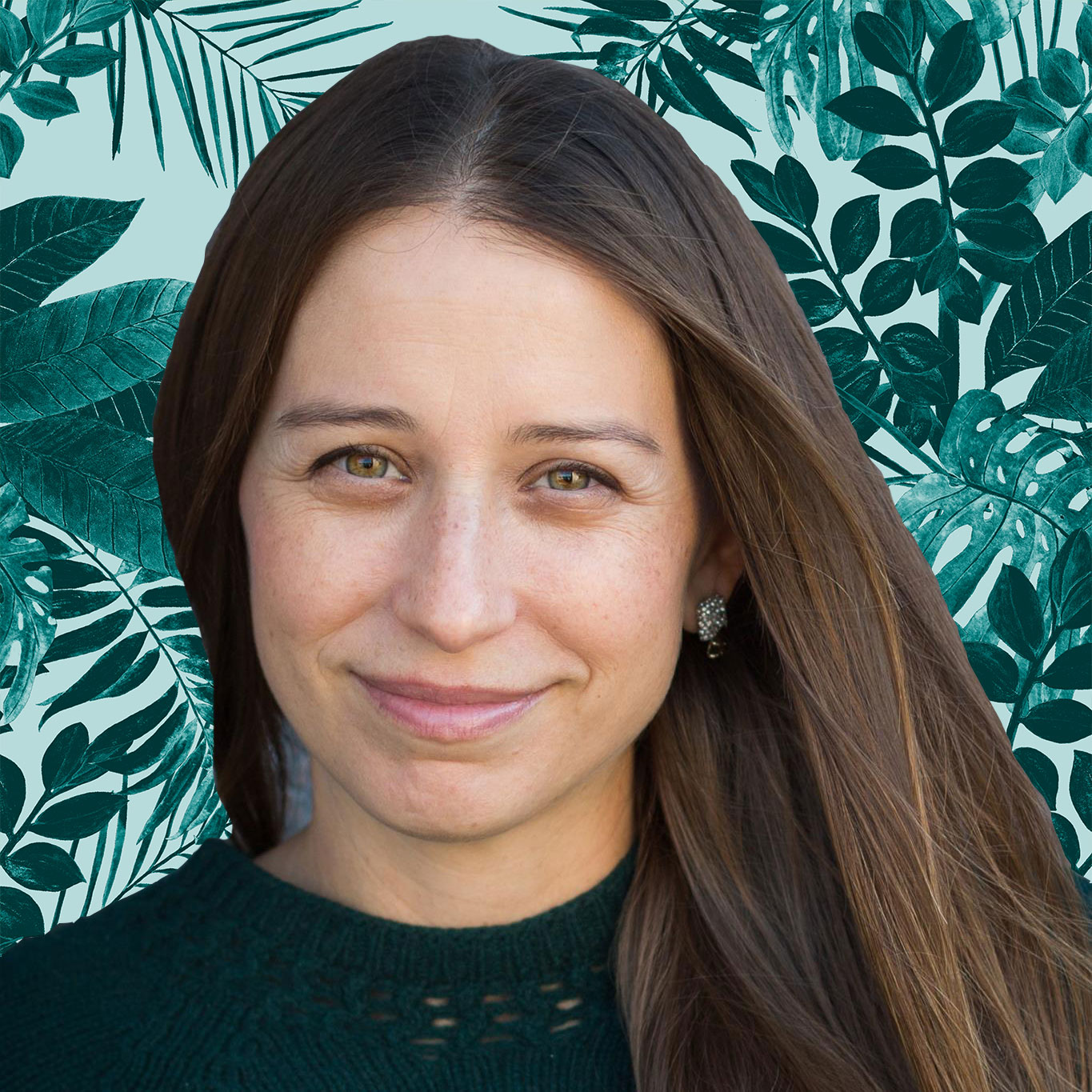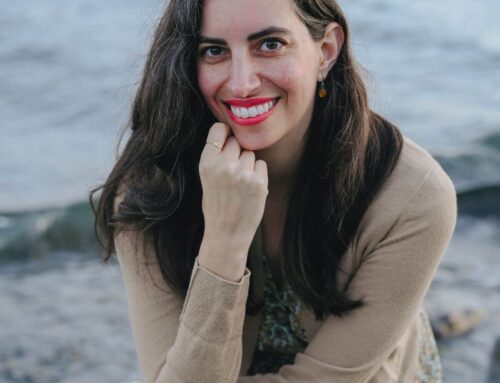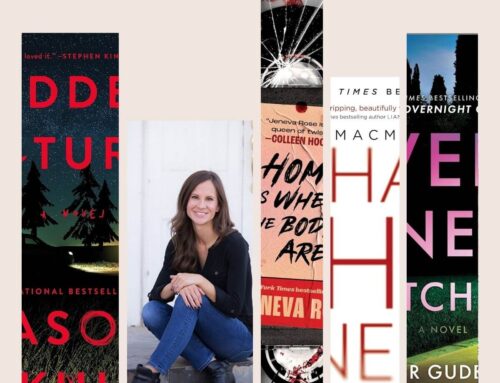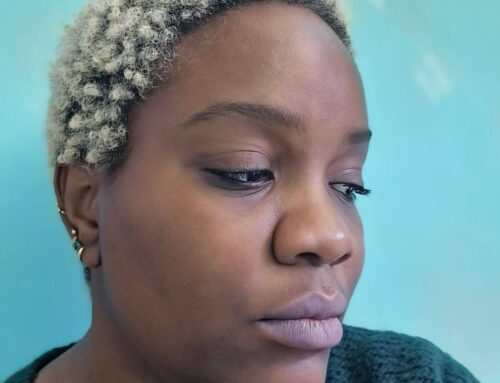We don’t know about you, but it feels like readers can’t get enough fiction that touches on the darker side of motherhood, especially when a thriller element is in the mix. We’ve been eating up the influx of dark fiction about the fears, oppression and sacrifice that calls of motherhood, particularly set in fantasy and dystopian worlds. So if you’re a fan, be prepared to meet your next favorite read: Elsewhere (June 28) by Alexis Schaitkin. If the name sounds familiar, it’s probably because you may have heard of a little book called SAINT X, Alexis’ critically acclaimed thriller debut, named a New York Times 100 Notable in 2020 and currently in development as a mini-series for Hulu.
Elsewhere is a speculative novel about the complicated undertaking of motherhood, and the myriad of ways in which a woman can lose herself within that task. Not just the constant questioning, guilt and judgment, but the unknowns, errors, and deciding on what legacy she wants to leave behind. Elsewhere centers around a secluded mountain town, where mothers vanish—into the clouds—without a trace for no rhyme or reason. When Vera was a young girl, her mother disappeared—and now, on the cusp of motherhood herself, she and her friends are left with the burning question of wondering who will disappear next. The townspeople are convinced that these mothers are chosen because of some peculiarity in the love for their children, and Vera can’t help but wonder: should she continue on her path to motherhood, or test fate and see what will cause her to disappear?
Read on for our exclusive interview with Alexis Schaitkin on the catalyst of clouds, being surprised by her own story, and how Elsewhere is a metaphor for childhood.

How did you go about building this speculative world?
Fifteen years ago, I was traveling abroad, and for a few nights I stayed at a guesthouse in the mountains. It was like something out of a fairy tale: stone cottages, ivy and moss growing over everything. Every afternoon, clouds settled in and filled the air. I have a vivid memory of sitting in a room where the windows had been left open and watching clouds flow into the room. I knew right then that I wanted to write a book set in a place like this someday; it just took a long time to find the right story. As soon as I had the idea for this book about vanishing mothers, I understood this was the story for that ethereal setting. The mist-covered mountains would do more than just create the atmosphere—they would be pivotal to the plot, with women seeming to evaporate into the clouds. And I was seduced by the idea of turning this dreamy setting into a site where something truly sinister is happening.
Writing this in isolation, during COVID, in the woods with your toddler while pregnant, how did you balance the light and darkness of those emotions while writing?
It’s crazy to me that I started writing this novel about motherhood, and then the pandemic happened and suddenly I was spending orders of magnitude more time alone with my son than I ever had before. We would go to the woods alone together for hours and hours every. Single. Day. It was such an intense mothering experience, and the way darkness and lightness sat together in it was so much of what I wanted to capture in this novel. There was such wonder in watching my son discover the world, in witnessing his personality develop, and in feeling this unbelievable closeness form between us. At the same time, this raised some really scary questions: just how deep and entangled should a mother-child relationship be? What bad things was I passing to him alongside the love I was giving him? How much was I losing my own self to this relationship?
Was it a surprise how the story unraveled for you?
Yes, completely! I have always thought of myself as a “planner”—I don’t start writing a first draft until I know where the story is going. With my first novel, Saint X, there were some changes that happened as I wrote, but the story arc is what I imagined from the beginning. But Elsewhere has a big plot twist at the end that I didn’t see coming until I’d been working on the novel for over a year. When the possibility occurred to me, I was so excited, because it felt so right: It was surprising, but it also fit in with the novel’s themes of love, sacrifice and loss.
What do you want a reader to take away from this book?
I think this novel is as much about childhood as it is about motherhood. The main character, Vera, is a teenager when she begins telling her story, and she shares a lot about her earliest memories, too. As a writer, I’m fascinated by how our first experiences shape us. In Vera’s case, she loses her mother very young, and has to navigate the world—and becoming a mother herself—without her. I’m also fascinated by how childhood feels, the hazy quality of those memories and how singular each person’s experience of being a young child is. In some ways, the town in Elsewhere is a kind of metaphor for childhood: It’s this strange place, beautiful and also dark, and nobody from outside of it can really understand its power.
How do you hope this translates to other mothers?
As a society, we’ve fallen into a really binary way of talking about motherhood. It used to be that mothers couldn’t speak honestly about the challenges of motherhood—we were supposed to love everything about it. Now, that taboo has been broken, but sometimes it feels like all we talk about is how hard motherhood is and how unhappy many mothers feel. I really wanted to get away from this black-and-white, love it or hate it way of viewing motherhood, and instead focus on how mysterious the experience of raising children is. It’s something that seems totally lost in the contemporary conversation about motherhood, but to me it’s so central: We raise these children we love so much, yet we have so little understanding of how the choices we make, the way we love them, will manifest in the person they become.
How did this unique angle on motherhood develop?
I knew I wanted to write a novel about motherhood, but I was so tired of mothering all day that the notion of writing about it, too, was also kind of painful. I didn’t want to have to write about the really tedious parts—making appointments, packing lunches, screen time battles—all the stuff of contemporary parenting. Setting this story in an isolated, timeless community was my way of solving this puzzle. Sure, the mothers in Elsewhere have frustrations and tedious obligations, but they’re totally different from the ones we’re familiar with. My goal was to write a novel that has big things to say about motherhood, but that also feels like an escape from contemporary motherhood, and I hope I achieved that.







Leave A Comment